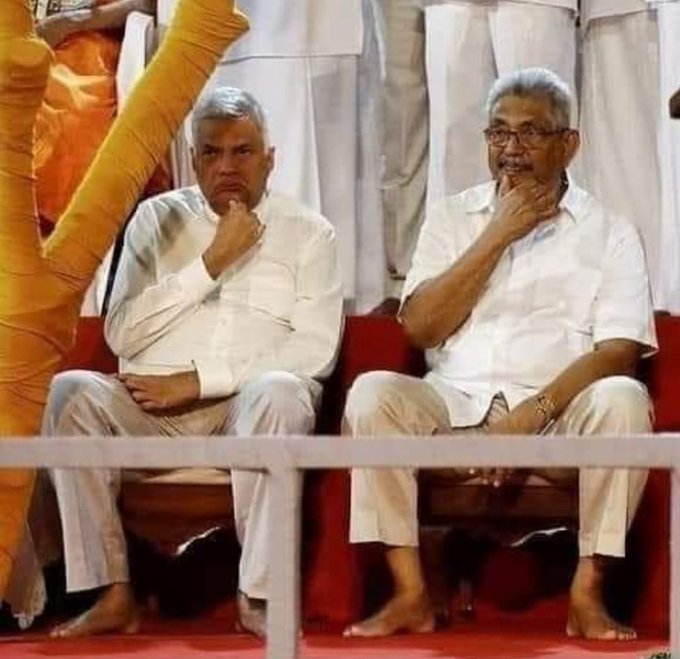Image: Gotabaya and Ranil both responsible for this situation.
The Sri Lanka health sector would face a serious crisis within a few weeks, if shortages of medicines, surgical equipment, and chemicals used in labs, are not addressed now, President of the College of Anaesthesiologists and Intensivists of Sri Lanka (CAISL), Dr. Anoma Perera, said on Thursday evening, addressing a press conference, in Colombo.
She said that most of the essential drugs used by anesthesiologists had run out. The stocks at the medical supplies division were zero, she said.
“There are no painkillers or drugs used for local anesthesia. This affects all sectors. We won’t be able to maintain emergency services, and caesarean surgeries. This is not a situation in the government hospitals only, the drug shortages are affecting all,” she said.
There are irregularities and mismanagement still and these are also hastening the crisis. In the next few months, the health sector might be compelled to maintain only the most emergency services,” she said.
Dr. Perera also urged Sri Lankans to manage their health, through behavioral means, and take precautions to minimize the risk of accidents.Sri Lanka Medical Association (SLMA) President, Dr. Vinya Ariyaratne, said that the health sector is facing a severe crisis due to the shortage of medicines, surgical equipment, and chemicals, used in labs.
He said that prices of these items have gone up tremendously and that the entire health sector has been adversely affected.
“In April 2022, we informed former president Gotabaya Rajapaksa that there will be a serious crisis by the first quarter of 2023. We have also worked with doctors to manage scarcities. The health staff in hospitals have done their best to ensure there was no collapse,” he said.
However, the drug management cycle is complicated and there are laws and regulations to ensure that lives of patients are not in danger. SLMA has given recommendations on drug management and works with doctors that are at the grassroots, he said.
“In the last 18 months, we have been telling officials about the emerging threats. We have also reached out to Sri Lankans, out of the country, seeking help. However, these stop gap measures are not enough. The government must identify that this is an emergency situation and take immediate steps. If not, we are in serious trouble,” he said.
Meanwhile, Dr. Ananda Wijewickrama, of the National Institute of Infectious Diseases, said most hospitals do not even have the facilities to conduct basic blood tests.
“Some hospitals can’t even print x-rays. They ask patients to bring a CD so they can burn the images into it”, he said.
Prof. Priyadharshani Galappatty, Professor of Pharmacology, at the University of Colombo, said that the government has not used the Indian credit line optimally.
The SLMA has asked the government to hold weekly meetings with representatives of the medical sector and take their input, only to import the critically required medicine.
“We had our first meeting with the Secretary to the Ministry of Health,” she said.
Prof. Galappatthy mentioned that a number of unregistered drugs are also coming in through the use of Indian credit lines.
“If we bring in low quality medicine, this would be a colossal waste. We have given recommendations to the Ministry. We must also establish a centralized system so everyone knows what we have got, and what is needed,” she said.
